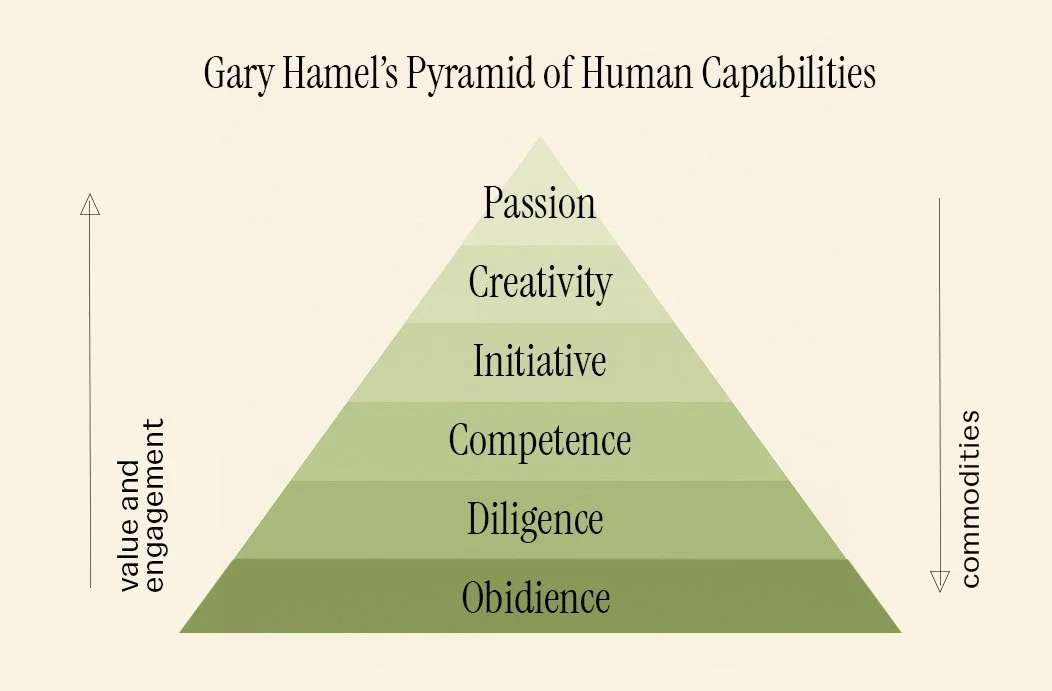Rethinking the freelancer bias
Why the people you hesitate to hire might be the ones you need most
I’ve been working as a self-employed brand designer for almost eight years now. Over that time, I’ve taken on a wide range of exciting projects, many of which I doubt I would’ve had access to working under someone else’s direction. Freelancing has given me, well, freedom. Freedom to choose the work I do, where I do it, and how I structure my days. It’s also given me space to take risks, learn, and actively shape the direction of my career.
That said, every now and then I find myself checking job listings, especially when an interesting position pops up. I’d be willing to trade some of freelancing’s perks for the right opportunity: a long-term team, the stability of shared goals and the chance to build something collaboratively. I miss that part.
Over the past eight years, I’ve interviewed for four senior roles. Three that I applied for, and one that came via a headhunter. The conversations were positive and I felt my work was well received and my experience respected.
But in a few cases, I noticed a recurring hesitation near the final stage.
“We’re not sure you’d really want to work here.”
“What if you don’t stay long?”
“Would you actually enjoy being employed?”
From my perspective, the interest was genuine, otherwise, I wouldn’t have applied. Because yes, I also admit that I’m picky. The next step should add value to my current situation. But the questions pointed to something else.
A familiar assumption
There’s an unspoken assumption that freelancers are too independent to integrate into traditional teams. Too used to autonomy. Too likely to drift off after six months and launch something of their own.
And so, companies often lean toward candidates with more conventional titles and career paths. It’s understandable. Familiar patterns feel safer. But in today’s landscape where change is constant and innovation highly prized, this instinct may be due for a rethink.
After all, the qualities most companies now claim to value (initiative, adaptability, creative thinking) are the same ones freelancers rely on every day. Many of us have built entire careers by learning to navigate ambiguity, take ownership, and drive results without clear direction.
Hamel’s Pyramid, revisited
Business thinker Gary Hamel once shared a model of human capability shaped like a pyramid. At the base are obedience and diligence which covers people who follow orders and meet expectations. In the middle: competence and initiative meaning those who go a step further. And at the top: creativity and passion.
If you follow that logic and consider the rising role of automation, the layers at the top are becoming more valuable, not less. Algorithms can manage tasks. What they can’t replicate is genuine curiosity, insight, and original thinking.
Many freelancers operate precisely at that level. But that’s not to say we don’t have the foundation. A sustainable freelance career demands consistency, communication, and execution. We’re often our own project managers, contract negotiators, and tech support. There’s no one else to step in. We build systems because we have to and we maintain them because the work depends on it.
More bootcamp than bohemia
There’s still a cultural image of freelance life as something breezy or detached: morning swims, afternoon lattes, and bursts of late-night brilliance. But in practice, most long-term freelancers will describe something much closer to a bootcamp.
Every brief, every deadline, every proposal, we own them. There’s no backup plan, no middle manager, no weekly sync. If something doesn’t get done, it doesn’t get done. And if it goes well, we move forward. If it doesn’t, we adapt quickly because we have to.
We become generalists by necessity: marketers, strategists, producers, account managers. We learn to communicate across industries, frame value, pitch ideas, and make progress with limited data and resources.
The question of commitment
One concern that often comes up is: Will they stay?
It’s a valid question. But it’s not exclusive to freelancers. Tenure is shifting across the board. People leave jobs for many reasons, and often, it has less to do with employment status and more to do with meaning, alignment, and opportunity.
If a freelancer applies to a full-time role, they’re not doing it for structure or security alone, they’re opting into something they find compelling. That decision deserves to be seen for what it is: a sign of alignment, not a red flag.
Yes, freelance life offers flexibility but it also comes with tradeoffs. Many independent professionals would be open to a role that brings a sense of shared purpose, long-term impact, and team collaboration. It’s not about giving up autonomy. It’s about investing it.
Conclusion: Independent doesn’t mean isolated
In a rapidly evolving world of work, the ability to self-direct, adapt, and create under uncertainty is more important than ever. Freelancers do that by default. Not as a side skill, but as the foundation of how we operate.
Hiring someone who’s built a career independently doesn’t mean compromising stability or loyalty. It often means bringing in someone who’s delivered across different teams, learned what works (and what doesn’t), and developed the muscle to navigate change and drive value.
So if someone with a freelance background lands in your hiring funnel, it’s worth pausing before defaulting to doubt. They might not follow the expected path but they may bring exactly the perspective, energy, and ownership your team needs next.

